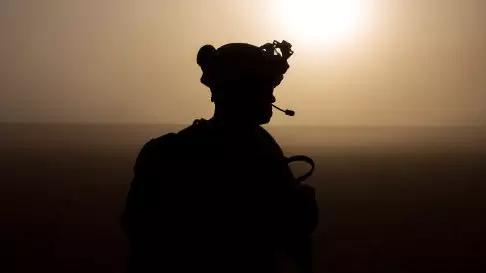
In the wake of last week's Westminster terror attack, it has emerged that the government plans to station SAS troops in London.
The troops will be deployed on the streets to bolster security in the capital and will be placed on standby at a secret location in the city centre for at least the next year.
Elite officers, normally based in Hereford, will be on an 'immediate notice to move' and be armed with special 'take-down' bullets.
Advert
This comes alongside other security measures, such as a new 'ring of steel' around key London landmarks such as Buckingham Palace.
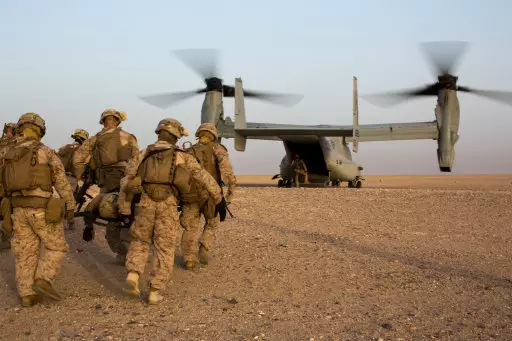
Credit: PA Images
A security source told the Daily Star: "Incidents such as last Wednesday's attack always highlight weaknesses in any security system.
"No system is perfect but it's important that any perceived weaknesses are addressed. People need to know how to react in an emergency."
It is reported that the SAS troops selected for the London team will be able to enter buildings using explosives or 'fast-rope' from helicopters on to roofs, and armed with 'take-down' bullets designed to kill instantly.
MI5 is also set to go on a recruitment drive to enable the organisation to more effectively monitor and defend against potential lone wolf terrorists.
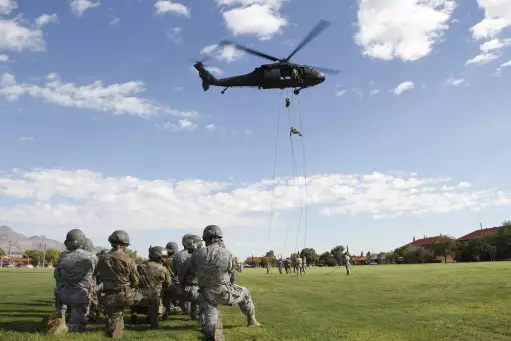
Credit: PA Images
The new tactics will also include plain-clothes armed police officers protecting major London landmarks.
A security source told the Express: "This is not the first time that a terrorist who was on MI5's radar has carried out a criminal act.
"At the moment MI5 are working 24/7 trying to establish whether this attack is a one off or the first part of a wider plan."
Acting Deputy Commissioner Mark Rowley said: "More widely-the police service will sustain an enhanced armed and unarmed presence over the next few days.
"London and the UK are open for business, and we are out there in greater numbers to make sure that the public see a highly visible presence help reassure them as they go about their daily lives."
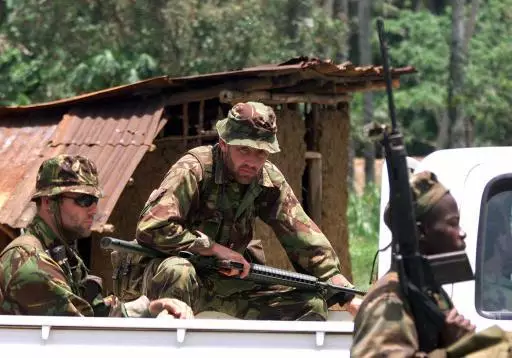
Credit: PA Images
Former Met Police commander Kevin Hurley has criticised the lack of tight security around Parliament.
Mr Hurley said: "It almost beggars belief that a uniformed constable at the front gate of Parliament should be performing his duties when not even armed with a pistol.
"When suicide attacker starts, you have to stop him instantly. We have seen what a relatively unfit terrorist can do with a knife and car.
"Imagine if three fit young terrorists armed with AK47s had attacked Parliament. There would have been a very large number of casualties."
Who Are The SAS?
The SAS (Special Air Service Regiment) consists of some of the best trained and well equipped soldiers in the world.
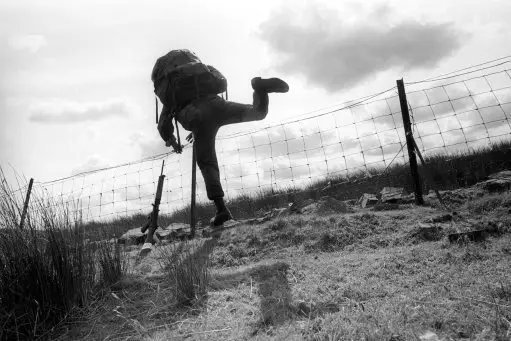
Credit: PA Images
The special forces unit traces its origins to the Second World War, and undertakes a number of roles including covert reconnaissance, counter-terrorism, direct action and hostage rescue.
A crack-team of Britain's best soldiers, the regular elements of United Kingdom Special Forces never recruit directly from the general public and historically the majority of candidates have a Commando or Airborne forces background.
Selection lasts for five weeks and normally starts with about 200 potential candidates. In order to pass the unit's arduous recruitment test candidates. They must first complete a Personal Fitness Test (PFT) and an Annual Fitness Test (AFT), they then march cross country against the clock, increasing the distances covered each day, culminating in what is known as Endurance.
This is a march of 40 miles (64 km) with full equipment scaling and descending Pen y Fan in 20 hours.

Credit: PA Images
If candidates pass this part of the selection process, they are then shipped out to the Belize, Brunei or Malaysia jungle where they are taught navigation, patrol formation/movement and jungle survival skills.
Candidates return to England to finish training in battle plans, foreign weapons and take part in combat survival exercises, the final part of which is a week-long escape and evasion exercise.
Finally, they are put under the screw in a 36-hour Resistance to Interrogation (RTI) test, little is known about what recruits are subject to, but it is said to be the most gruelling part of the selection process.
Of the 200 that begin, usually only 30 remain by the end of the selection process, with the majority of candidates dropping out in the first week. Those who successfully complete all phases of selection are rewarded with a transfer to an operational squadron.
Advert
Source: The Daily Star, The Express and The Daily Mail
Featured Image Credit: PA Images